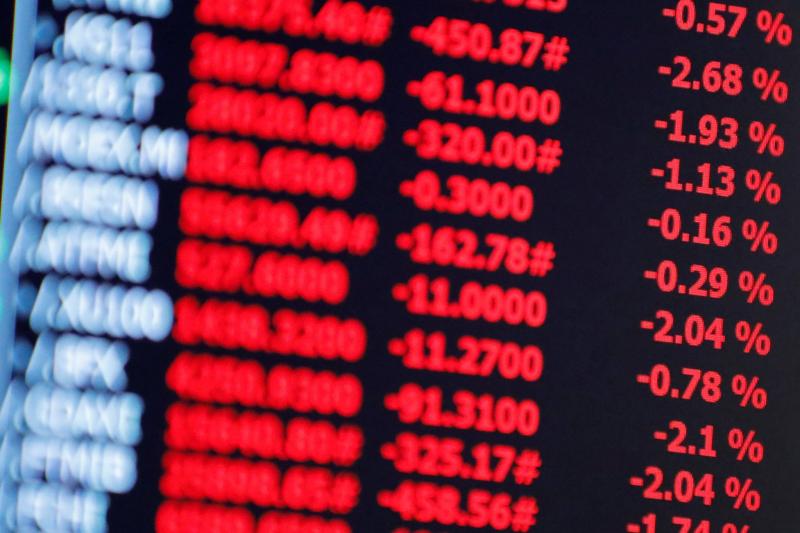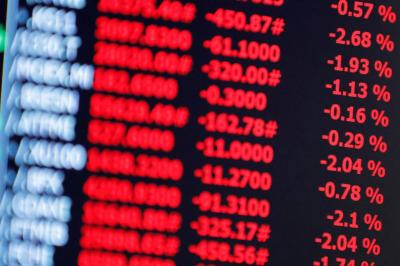The era of "Sayrafa" has ended, making way for Bloomberg, following a government decision based on the proposal of the Central Bank of Lebanon to trade currencies through Bloomberg, particularly the Lebanese pound and the US dollar, as well as stocks, currencies, and metals among other financial instruments. This platform will be available to everyone, not limited to a specific group.
The financial market is eagerly awaiting the launch of the new platform known as the "Bloomberg" platform, which will start trading by the end of September. Bloomberg will replace the local "Sayrafa" platform, which was suspended by the acting Governor of the Central Bank, Wassim Mansouri, and his deputies in August. The goal of establishing the "Bloomberg" platform is to adopt the real exchange rate of the US dollar against the Lebanese pound in the economy and to have increased transparency regarding supply and demand, at least to know their sources and ensure their operations are transparent. Following the halt of Sayrafa, there has been a rush of proposals to "legalize" the exchange rate, with Fadi Khaf, the Secretary-General of the Association of Banks in Lebanon, suggesting in the opening of the association's monthly report to use the Beirut Stock Exchange for listing the Lebanese pound instead of purchasing a platform from Bloomberg. Khaf listed several positive points for this proposal, including the low cost to the state, the trading system, confidentiality of trading, interconnection with financial institutions and banks and brokerage firms, the cost of listing on the stock exchange, and price transparency offered by the trading system.
Khaf pointed out that there are "specific characteristics in the dollar market in Lebanon that require significant modifications to global platforms, which might take considerable time, as well as necessitating a trial and training period that could be lengthy. In contrast, the Beirut Stock Exchange is linked to a considerable number of banks that have trained their employees over decades to use its techniques without any flaws, so there is no need to waste time on training and testing periods."
Former Deputy Governor of the Central Bank Dr. Ghassan Al-Ayyash revealed that the Central Bank has been planning for about three months to abolish the system known as "Sayrafa" and replace it with currency exchange through the global Bloomberg institution. He mentioned in an interview that this agreement with Bloomberg "achieves transparency in the foreign exchange market by bringing the operations to the public eye, stopping the secret bleeding of foreign assets," and ensures that the exchange rate is determined based on supply and demand. He believes that the reason for adopting this option, i.e., Bloomberg, is that "Sayrafa," which was created under pressure from circumstances, was "entirely lacking in transparency." Its operations were characterized by ambiguity and "covered a concealed intervention by the Central Bank in the foreign exchange market by selling dollars, which led to the depletion of the Central Bank's foreign currency assets," alongside controlling the exchange rate of the Lebanese pound, especially when calculating employee salaries, even at the expense of the Central Bank's foreign currency reserves, which have decreased to critical levels.
In another area, Al-Ayyash firmly states that the improvement in the value of the Lebanese pound is fundamentally linked to the reforms demanded by the International Monetary Fund. He emphasizes that this "solution is difficult because it is based on two elements that are unpopular with the public, namely increasing tax revenues and reducing expenditures, especially public sector salaries." One reason for the weakness of both the national currency and the economy, according to the former Deputy Governor of the Central Bank, is "the lack of trust in the political system, which risks undermining constitutional institutions, gambles with the judiciary, and obstructs the rule of law."
In this context, the former president of the Association of Banks' Supervisory Committee, Samir Hamoud, explained that "reviving the Beirut Stock Exchange requires first reviving the banking sector," in addition to that the appointments to the stock exchange are made based on Lebanese sectarian quotas. Economic journalist Jad Ghosn shares Hamoud's opinion regarding the Lebanese sectarian system, which has rendered the Beirut Stock Exchange a weak platform lacking transparency, given its subservience to "the market of political patronage." He stated in an interview that "trading in currency through the stock exchange or any other platform is subject to the terms of supply and demand," which means liberating the pound and subjecting it only to market forces.
He clarifies in this context that the difference between the Bloomberg platform and the Beirut Stock Exchange lies in who will be the "decision-maker to halt trading in case of suspicious speculation." If the Beirut Stock Exchange is adopted, given the current patronage and speculation realities and the manner of intervention by the Central Bank amidst the current economic and financial crisis, who will intervene to stop speculation against the pound? Conversely, if it is Bloomberg, it can do so as it is an external entity. He continues, "Having an internal platform is certainly better for any sovereign state with a clear fiscal policy and a fully transparent stock exchange, which is not the case in Lebanon." Thus, the ability of internal forces capable of speculating against the local currency and interfering with the exchange rate "will be difficult for them to do so with an external entity."
The Central Bank of Lebanon is relying on the Bloomberg platform to determine the exchange rate, and it is noteworthy that only the Central Bank has the authority to make decisions related to "Bloomberg." While awaiting the Central Bank to disclose more information about the new platform, particularly its launch date, the Central Bank relies on the Bloomberg platform to determine the actual exchange rate in Lebanon and significantly unify exchange rates, as it will facilitate the central bank's role in curbing trading and speculation activities and its intervention regarding the exchange rate.
The Beirut Stock Exchange is the only functioning securities market in Lebanon. Its beginnings date back to 1920. The market witnessed its golden age in the 1950s and 1960s before entering a slump due to war. The market was closed in 1983 due to the deteriorating economic and security situation, reopening in September 1995, with trading resuming in January 1996. The number of listed companies on the Beirut Stock Exchange is 11, along with several debt instruments and investment funds.




